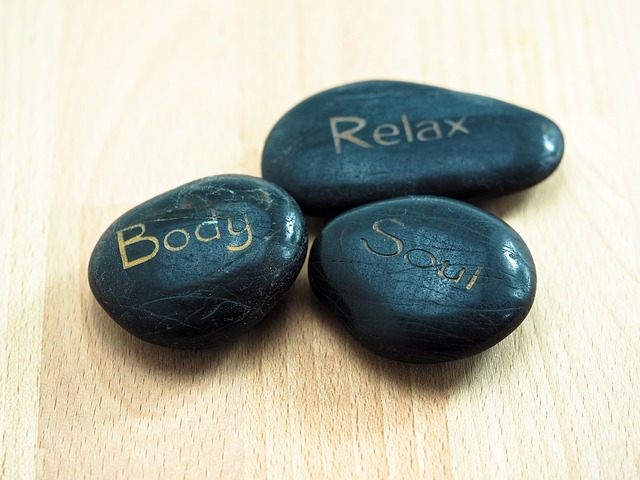Incorporating yoga routines into daily life offers a holistic approach to mental and physical balance. Just a few minutes daily can reduce stress, promote mindfulness, enhance physical health, and foster a deeper mind-body connection. Combined with balanced nutrition and meal planning, and diverse regular exercise, yoga cultivates comprehensive wellness by improving flexibility, strength, mental clarity, energy levels, mood regulation, and cognitive function while managing stress and promoting long-term well-being.
“Unleash your body’s potential and embrace a holistic approach to wellness with our comprehensive guide. Discover the transformative power of yoga routines, not just for physical strength but also as a pillar of mental balance. Learn how tailored nutrition and meal planning can fuel your body, while exploring diverse exercise methods to enhance overall health.
This article delves into effective stress management techniques, offering practical strategies to cultivate long-term wellness, with a particular focus on the benefits of regular yoga practices.”
- The Power of Yoga Routines for Mental and Physical Balance
- Nutrition and Meal Planning: Fueling Your Body for Wellness
- Incorporating Regular Exercise Beyond Yoga for Holistic Health
- Stress Management Techniques to Enhance Long-Term Wellness
The Power of Yoga Routines for Mental and Physical Balance

Incorporating yoga routines into your daily life can be a game-changer for achieving both mental and physical balance. This ancient practice offers a holistic approach to wellness, focusing on flexibility, strength, and mindfulness. By dedicating even just a few minutes each day to yoga, individuals can experience significant improvements in their overall well-being. The gentle stretching and mindful breathing techniques associated with yoga routines help reduce stress and anxiety, promoting mental clarity and calmness.
Moreover, regular yoga practice enhances physical health by improving posture, increasing muscle strength, and boosting flexibility. Yoga routines are designed to engage various muscle groups, allowing for better body alignment and reducing the risk of injuries. The mind-body connection fostered through yoga also contributes to a deeper sense of awareness, encouraging individuals to listen to their bodies’ needs and make informed lifestyle choices that support long-term wellness.
Nutrition and Meal Planning: Fueling Your Body for Wellness

Nutrition and meal planning are fundamental aspects of supporting long-term wellness, playing a crucial role in maintaining energy levels and overall health. Incorporating balanced meals into your daily yoga routines can enhance both your physical and mental well-being. Start by focusing on whole foods, such as fruits, vegetables, lean proteins, and whole grains. These provide essential nutrients that support muscle recovery, boost immunity, and promote healthy digestion.
Meal planning is key to ensuring you consistently make nutritious choices. Set aside time each week to plan your meals, consider batch cooking to save time, and always have healthy snacks on hand. By taking a mindful approach to nutrition, you can fuel your body effectively, allowing your yoga practices to flow more smoothly and deeply, thus cultivating a holistic sense of wellness.
Incorporating Regular Exercise Beyond Yoga for Holistic Health

Regular exercise is a cornerstone of holistic health, going beyond the well-known benefits of yoga routines. While yoga is an excellent practice for flexibility, strength, and mental clarity, incorporating a diverse range of physical activities ensures a more comprehensive approach to wellness. From brisk walking and swimming to strength training and high-intensity interval training (HIIT), these exercises target different muscle groups and cardiovascular systems, promoting overall fitness.
Diversifying your exercise routine offers several advantages. It helps prevent boredom, ensuring you stay motivated. Additionally, it reduces the risk of overuse injuries associated with repetitive motions found in specialized yoga practices. By combining various forms of exercise, individuals can experience improved energy levels, better mood regulation, and enhanced cognitive function—all essential components for maintaining long-term wellness.
Stress Management Techniques to Enhance Long-Term Wellness

Stress management is an integral part of any wellness journey, and incorporating techniques like yoga routines into your daily life can be a game-changer. Yoga isn’t just about physical poses; it’s a holistic practice that combines movement, breath control, and mindfulness. Regular yoga sessions can help reduce stress hormones, lower blood pressure, and improve overall mental clarity. The calming effects of yoga extend beyond the mat, promoting better sleep, enhanced focus, and increased resilience to stressful situations.
Additionally, mindfulness practices often taught in yoga can be applied throughout your day-to-day activities. This includes focusing on the present moment, observing thoughts without judgment, and cultivating a sense of inner peace. By integrating stress management techniques like yoga into your lifestyle, you’re taking proactive steps towards long-term wellness, ensuring that mental and physical health are nurtured equally.
Adopting a holistic approach to wellness involves integrating mental, physical, and emotional well-being. By incorporating regular yoga routines, mindful nutrition, exercise beyond the mat, and stress management techniques, you can create lasting lifestyle changes that support overall health. Yoga routines provide mental clarity and physical strength, while proper meal planning fuels your body with nutritious energy. Incorporating diverse exercises boosts fitness and flexibility, and effective stress management ensures a balanced and fulfilling life. Embrace these practices to unlock your fullest potential for long-term wellness.
